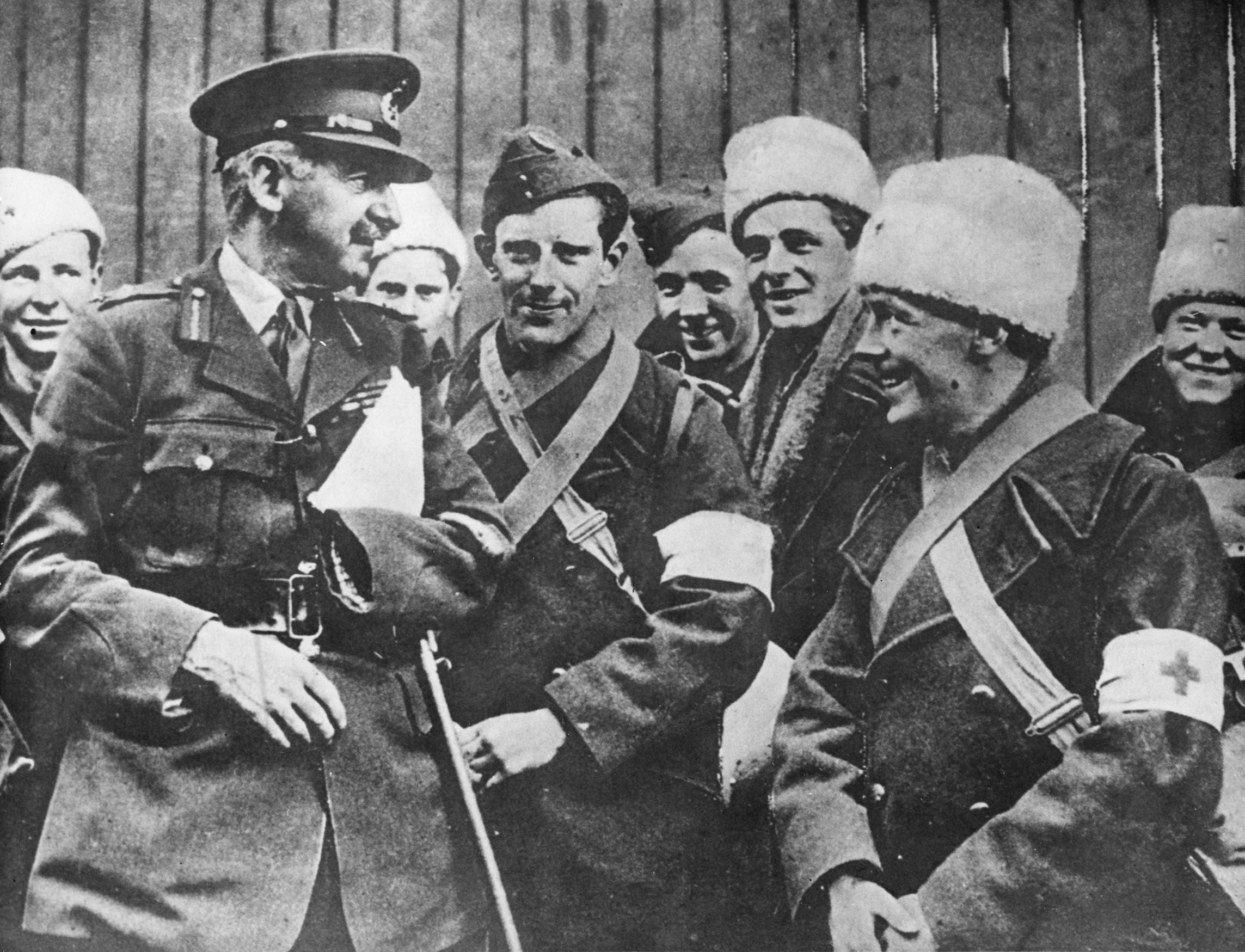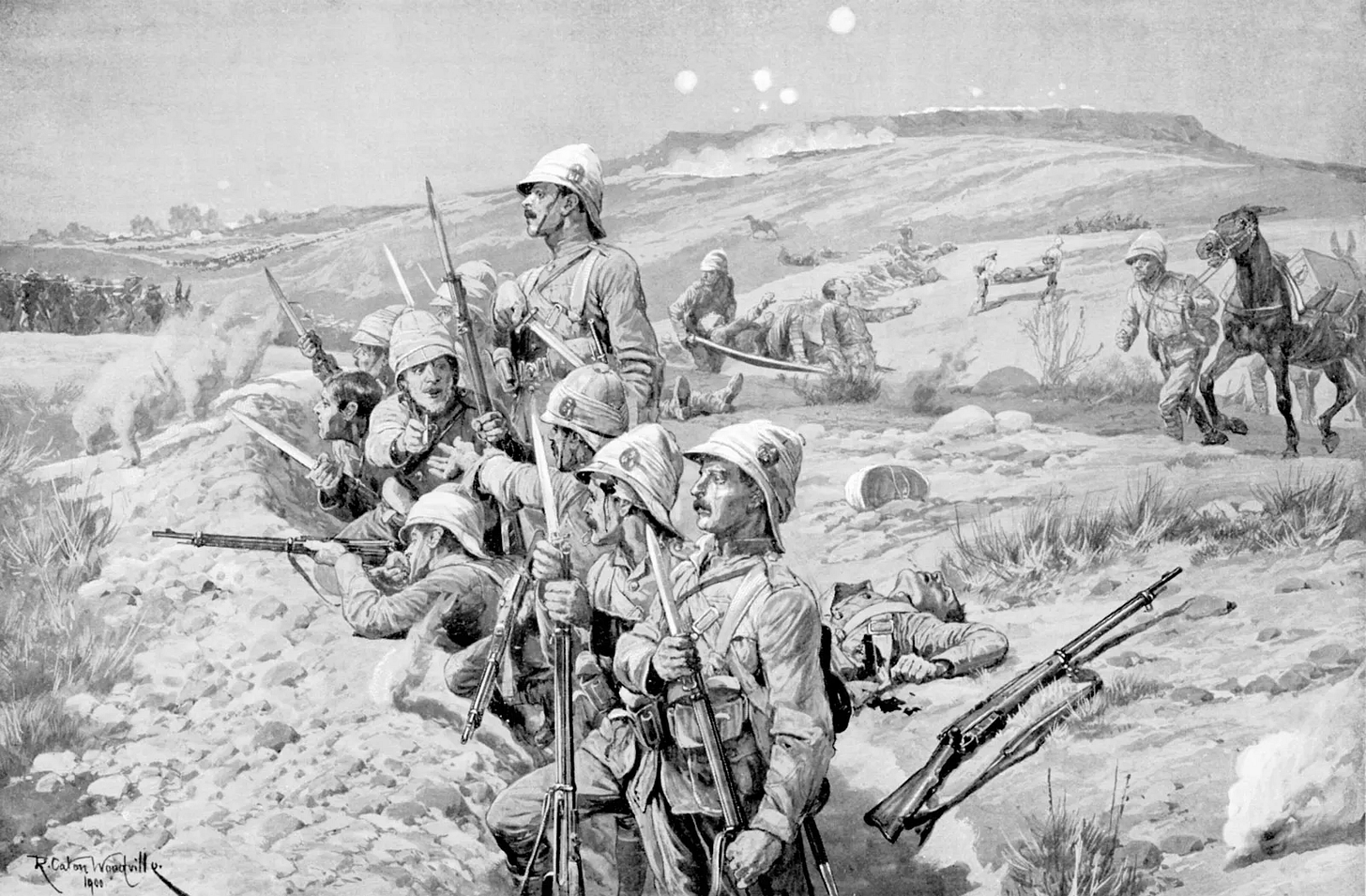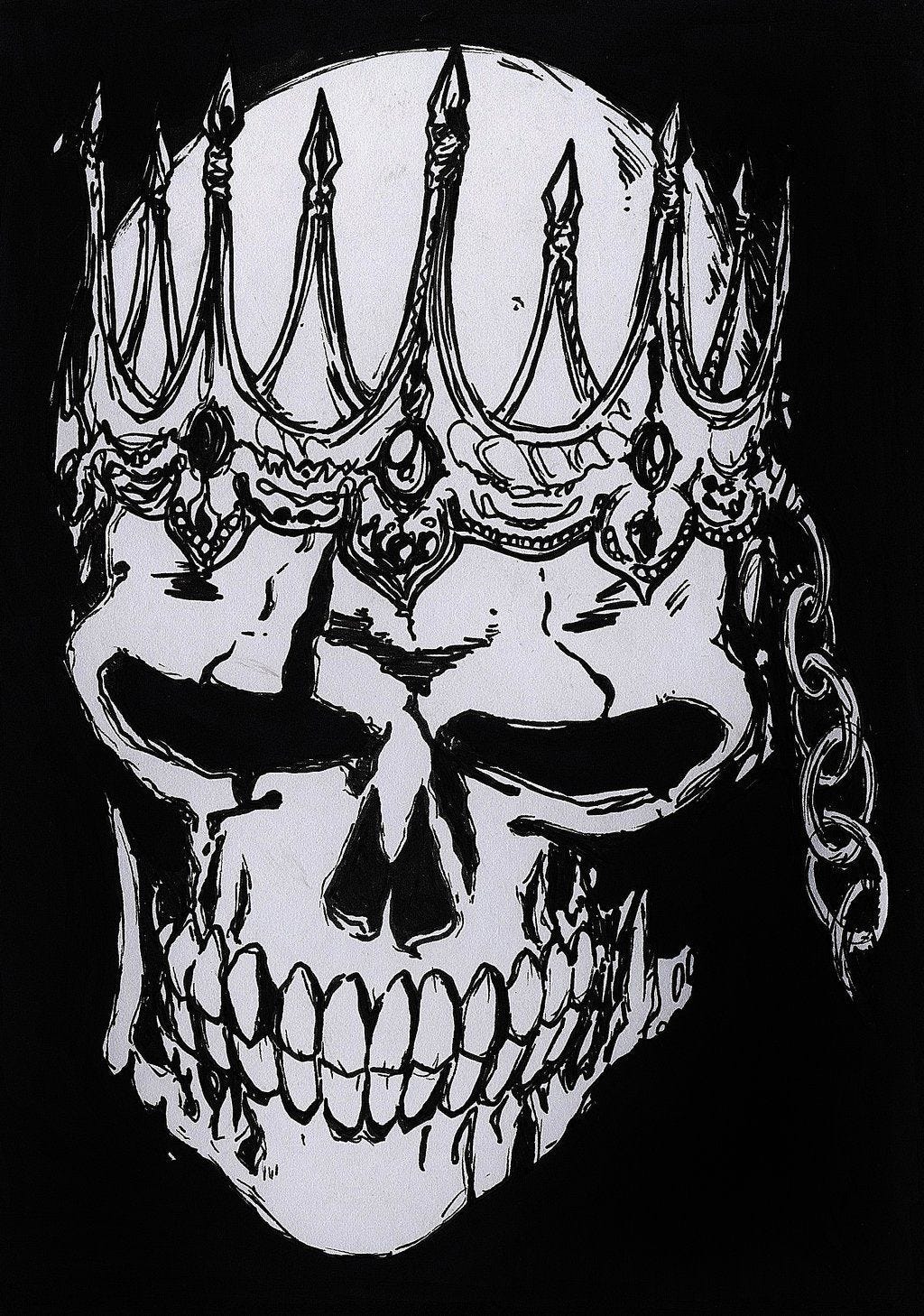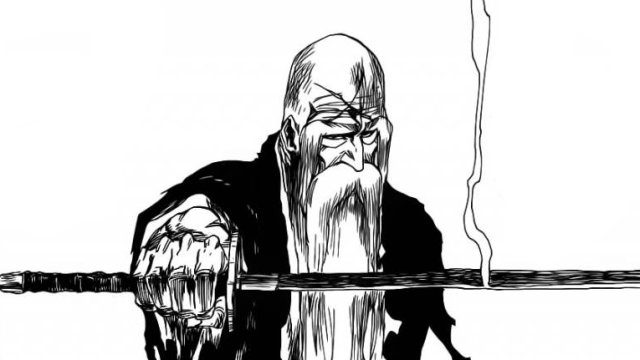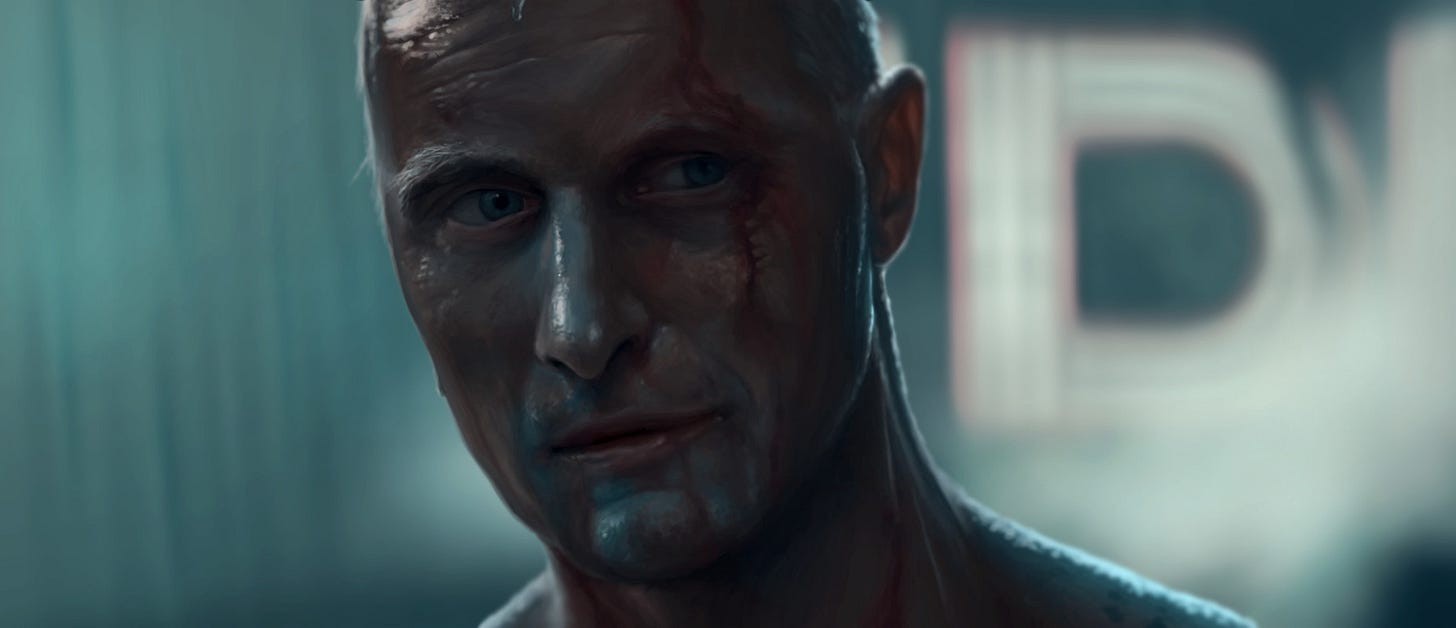We all have suffered from incessant, and negative mental chatter. Ruminative thoughts, and defeatist self-talk. Perpetual draining, internal monologue on repeat. The following is not an antidote. The following is not self-help. The following is not a book review, nor analysis. The following is merely about a man, who was a soldier, chronicling his way through war; and in that context, thought about war, and himself juxtaposed, and or positioned in the thick of it. In this ontological procession, the mind does only God knows what. There, the mind chatters. And from there, if one were to write about it . . . How does one go about such an endeavour? What words does on use, in battle, about battle and warfare?
The following is an observation of adjectives and adverbs; modifiers. An staring contest with the labyrinthine nature of linguistics; the dance with the madness and maze like quality of the mind. The following is about keeping your composure, keeping calm. Ice in the veins. Losing your emotions, passions. A world at war means to lose yourself most of all. What remains?
The power of the human mind is unparalleled. Once harnassed you can utilize it to overcome Great Loss: the physical, mental and emotional kind. Once you understand the proper masculine role your story demands of you, you'll be able to embrace the suffering and ride along with it.
Your Story
The way you talk about yourself becomes the way you feel about yourself; the way you feel about your current situation, and past, and future.
How you craft your narrative is how you feel about your Life Story.
Adrian talks about his life story in his memoir.
EYE LOSS (Boer War)
What's interesting is not just his military achievements, but the way he talks about his injuries sustained.
It is with a laconic language (the world laconic has its etymological roots from the Spartans. Who were known for laconic wit; which is similar to Viking dark sardonic humor. Laconia was the region the Spartans came from).
Affectless. Stoic. Controlled:
"I got a glancing blow in my eye, but I was too wound up to stop. I had to go on trying to get in [he's performing an assault on a position]."
Look at the verbiage: "glancing blow";
and then he puts emphasis on how "wound up" he is.
Completely Not focusing on his EYE. He goes on:
"The following shot split my ear, and as the doctor was standing conveniently near he stitched it up there and then, looking meanwhile at my eye which feeling pretty painful. It seemed to be beyond immediate repair."
"pretty painful"
"beyond immediate repair"
Just look at the AFFECTLESS TONE of how this is delivered.
"Patched up, and still wound up, I tried again to storm this blockhouse, but a ricochet from a bullet went through the same damaged eye."
"Damage" — insinuating there might be some Damage Control. Or that it's still not over, that there's still some remedy to be found (Hope).
And these are the last words he spent in his memoir on losing his eye:
"It had all been most exhilarating fun and the pace too hot for anyone to have had any other sensation but thrill, primitive and devouring. But by the time I got back to camp I was in bad shape, my eye very painful, and I was practically blind.
"...whenever I have been very ill or badly wounded, that though the hours crawl, the days and weeks flash by with their monotonous impersonality, each indistinguishable from the other."
"The eye was taken out on January 3rd, 1915."
Note how fast Adrian accept things, his loss, and takes his loss. And that is to say: The next move is the right move. You can't stop time and life moves on. By the time he gets out of bed from healing up, he's ready for war once again. It's all about how you Frame Your Story.
The Medical board wanted him to wear a glass eye. Only then they approved his desire to go to war in France.
He realizes this is not the way:
"On emerging I called a taxi, threw my glass eye out of the window, put on my black patch, and have never worn a glass eye since."
HAND LOSS (WWI)
"The war may not have been going very well for us but we have two Great Assets which the German could not emulate, the unconquerable SPIRIT of the Britisher who is at his BEST when he is Losing, and that unfailing sense of humor which can rise above Everything."
Adrian's Philosophy
Second in command says to him: "I wish you'd duck when those shells come."
Adrian: "I was on the point of telling him that I was a Fatalist and believed in the Appointed Hour."
Reminding us of how Evola Pondered his Destiny on long walks during bomb raids.

"We were fired on . . . I found myself sprawling on the ground with a damaged hand. I caught hold of it but it seemed to be a gory mess."
"On the way up the road I had taken a woolly scarf off a dead German as the night was cold, and now I wrapped this scarf round my wrist holding the ends between my teeth, and started walking back."
"My hand was a ghastly sight; two of the fingers were hanging by a bit of skin, all the palm was shot away and most of the wrist.
"I asked the doctor to take my fingers off; he refused, so I pulled them off myself and felt absolutely no pain in doing it."
Again, we see the Instant Acceptance, instant Movement. Take off (part of) the limb, to save the rest of the body. Your philosophy guiding you, your mind intact, and in control, firing you up to and to take the next action.
Not saying this is taoist philosophy; However, instant acceptance, and gutteral, visceral, reflexive pivoting and leaping to the next move, or step, or position is part of Life’s Grander Wheel. Part of The Tao Flow.
Once the shot is out of the gun, on to the next shot.
He has innumerable operations on the hand, each time another bit chopped off. Surgeons believed in miracles, wanting to save the horrible remains. But Adrian wanted to take it off. Then another disaster strikes him as he's laying in his hospital bed. His father passes away.
"Dec. 1915 my patience was running out. My hand showed no sign of healing, I could stand it no longer and I insisted that it should come off.
The whole entertainment was no worse than having a tooth out and an HOUR afterwards I was sitting up eating a meal, when the door opened and into the room walked Tom Bridges. Tom was leaving the next day to command the 19th Division and he offered me a job in it. The effect of this offer was Magical, my Health Improved by leaps and bounds, and Within THREE Weeks I was out of the hospital and had every intention of Returning to France."
Battle Report:
They take off his hand
1 hour after he accepts an offer to go back to war
3 weeks later he's back in action
"I can do most things a two-handed man can do, and almost as quickly..."
He doesn't just sit around moping and makes the best of it:
"I found several more uses for my teeth other than just eating, and had Great Fun learning to Master my tie and my shoelaces.
Greatest triumph ... where I discovered to my joy that I could still tie on a fly (dry-fly fishing)."
After this he goes to the Battle of the Somme (Ernst Jünger went there, too. Who will be discussed soon enough, too).
He gets send back to England many times after getting hit.
One time he got shot in the Head.
He survives and becomes one of the youngest brigadier generals in the Allies, from captain in one year.
After the war he says that line: "I frankly enjoyed the war."
6 Mindset Takeaways (Life and Death, The Art)
1 Accept death.
You don't have to believe in your Appointed hour and fatalism, but you have to have some kind of governing philosophy / religion / faith to keep you going.
2 Through accepting death Overcome Loss
"Failure is not fatal: it is the courage to continue that counts."
—Winston Churchill.
As a man you're a warrior; a warrior is at war till the day he dies.
Until death, all defeat is psychological (US Army WWII field manual).
If you're not dead, you can't quit.
Not dead, cant quit.
Victory is surviving to fight another day.
3 Embrace loss asap and make the next move INSTANTLY
The longer you sit around feeling sorry for yourself, the worse you feel. Second you accept your mission / purpose, the better you feel and your situation drastically improves. Take the next shot and keep firing.
4 Work with what you have and focus on what's inside your control (not what's outside)
Cut your losses and cut off things that are not working, useless and dead. Focus your energy on what is still working. In doing so, you not only embrace your losses, but you embrace your story
5 SPIRIT + HUMOR
Once you accept death, embrace loss, embrace your story and focus on what you control, you activate your Spirit. Which enables you to keep living with unsurpassed energy and zest for life. You start to see joy in the things left in your life.
6 Rewrite your story with powerful language
Monitor how you hold yourself, speak about yourself: your losses especially. This is step One in carrying your story, reframing it and holding up the frame, for everyone to see for the remainder of your life at war.




